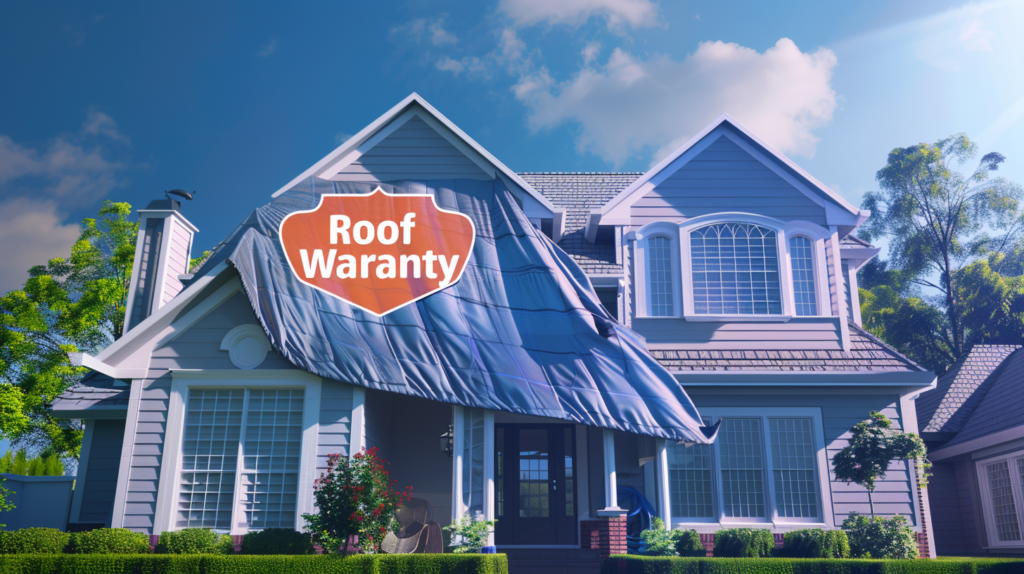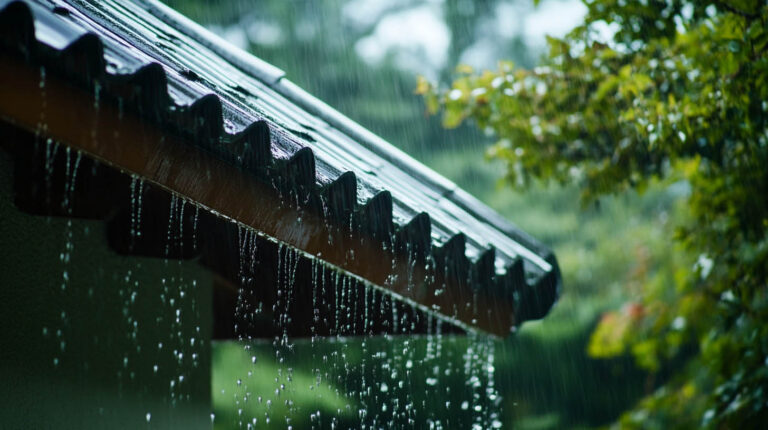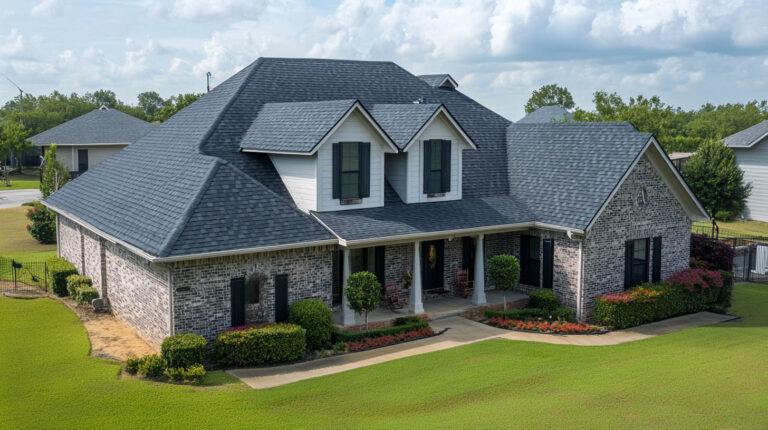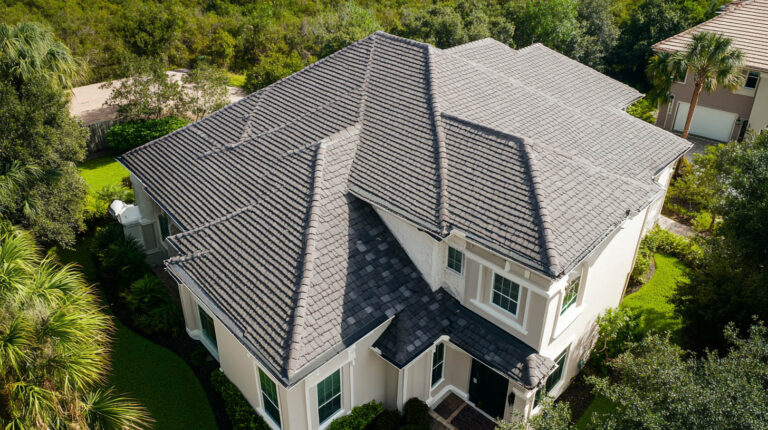
Blog
What Homeowners Should Know About Roof Warranties Before Signing a Contract
Your new roof is a significant investment in your home’s safety and value. Before you sign a contract, it’s vital to understand what your roof warranty covers. Warranties can seem complex, but knowing the details provides peace of mind and ensures your investment is protected for years to come. This guide will help you navigate the essentials of roof warranties so you can make a confident decision.
Essential Roof Warranty Terms Every Homeowner Should Know
Roof warranties are filled with specific language that can be confusing. Understanding these warranty terms is crucial to knowing what level of protection you are actually getting. The warranty documents outline everything from the coverage period to the claim process and any exclusions.
Before you agree to anything, you need to know the main warranty types. These include coverage for manufacturing defects in the materials and protection against installation errors. Knowing the difference helps you select the right roofing warranty for your home and your wallet.
Contact UsManufacturer Warranties Explained
A manufacturer warranty provides warranty protection for the roofing materials themselves. This type of coverage is offered by the company that makes the products, such as the asphalt shingles on your new roof. It is designed to protect you from product defects.
If your shingles show signs of premature failure due to a manufacturing issue, this warranty may cover the cost of the replacement materials. These warranties often come with names like “limited lifetime warranty,” but the terms can vary greatly.
It’s important to review the warranty agreement to understand what is covered. The warranty process for making claims on material defects is specific, so always read the warranty documents to know the proper steps to take.

Workmanship Warranties and Why They Matter
A workmanship warranty covers the quality of the installation performed by your roofing contractor. Even the best materials can fail if they are not installed correctly. This warranty protects you from workmanship issues like improper installation that can lead to roof leaks.
These warranties cover installation errors that the manufacturer’s warranty won’t. If a problem arises from a mistake made during the initial installation, the contractor is responsible for the repairs, which often includes the cost of labor.
Having a strong workmanship warranty provides true peace of mind. It ensures your contractor stands behind their work. Regular inspections can help identify any installation issues early and make the warranty claims process smoother if a problem occurs.
Extended and System Warranty Coverage
Extended warranties often provide additional protection beyond standard coverage, addressing specific issues like material defects and structural components. Homeowners should consider system warranties, which encompass the entire roofing system, including underlayment and ventilation, for comprehensive safeguarding against potential failures. Regular maintenance and inspections can enhance warranty validity and extend the roof’s lifespan. Understanding the fine print and manufacturer details is crucial in avoiding costly surprises that may arise from improper installation or excluded conditions in the warranty documentation.
What Is Covered and Not Covered by Most Roof Warranties
A common mistake homeowners make is assuming their roofing warranty covers everything. In reality, every warranty has specific inclusions and exclusions. Understanding what is and isn’t covered protects you from unexpected costs down the road.
Most roof warranties cover defective shingles or improper installation, but they often exclude damage from storms or a lack of regular maintenance. Let’s look at what you can typically expect your warranty agreement to cover and what it will likely leave out.

Typical Inclusions in a Roof Warranty Agreement
A roof warranty agreement typically encompasses coverage for material defects and workmanship issues that may arise during the installation process. Homeowners can expect protection against defective shingles, including potential roof leaks and damage due to improper ventilation. It is essential to review the documentation for specific maintenance requirements, as failing to adhere to these guidelines can void the warranty. Regular inspections and maintenance are often necessary to ensure the roof remains durable and qualifies for warranty claims, providing peace of mind for any new homeowner.
Common Exclusions Homeowners Should Watch For
Exclusions in roofing warranties can lead to unexpected expenses for homeowners. Common pitfalls include neglecting maintenance requirements, which often void the warranty. Additionally, damages caused by improper installation or storm-related events like high winds or tornadoes may not be covered. Homeowners should also check for limitations on coverage for specific materials, such as underlayment or defective shingles. Paying close attention to the fine print ensures that potential gaps in warranty protection don’t result in costly surprises down the line.
Call Us 904-712-3494Key Differences Between Material and Workmanship Warranties
Understanding the difference between material and workmanship warranties is crucial when choosing a roofing contractor. A material warranty, provided by the manufacturer, covers material defects in the products themselves, like defective shingles.
A workmanship warranty, provided by your roofer, covers errors made during the initial installation. If your roof leaks due to installation errors, the workmanship warranty is what provides warranty protection. Asking the right questions about both types of coverage will ensure you get the peace of mind you deserve.
Comparing Roofing Brands: CertainTeed vs GAF Warranty Features
CertainTeed and GAF both offer robust warranty features, but they differ in several significant aspects. CertainTeed provides a limited lifetime warranty that covers material defects, alongside comprehensive workmanship warranties that safeguard against installation errors. GAF, on the other hand, enhances its offerings with system warranties that integrate various roofing components for maximum protection. Understanding these distinctions can help homeowners make informed decisions, ensuring their investment in roofing materials and installation delivers the desired peace of mind and protection against costly surprises.
How Contractor Certifications Impact Warranty Protection
Choosing a roofing contractor with the right certifications ensures superior warranty protection. Certifications like CertainTeed’s Select Shingle Master are awarded to only a select group of companies that meet strict quality and professionalism standards.
At Avenue Roofing, we offer the highest level of CertainTeed warranty coverage. Our A+ Better Business Bureau rating and Google Guaranteed status reflect our commitment to excellence and give you added peace of mind.
Benefits of working with a certified installer include:
- Extended, comprehensive warranties
- Assurance of top-quality installation
- Manufacturer-backed coverage
Important Questions to Ask Your Roofer About Roof Warranties
Before you commit to a roofing project, it is essential to ask your roofing contractor the right questions about their warranties. Clear answers about warranty terms, coverage, and exclusions will help you avoid misunderstandings and ensure you receive the warranty protection you expect.
Getting this information upfront can save you from major headaches if you need to file a warranty claim later. A trustworthy contractor will be transparent and provide all the warranty documents you need for your peace of mind.
Understanding Length and Transferability of Roofing Warranties
Length and transferability are essential aspects of roofing warranties. Typically, manufacturer’s warranties offer limited lifetime coverage, while workmanship warranties may last from one to ten years, depending on the roofing contractor’s credentials and the quality of installation. Understanding the transferability clause can also add significant value, especially for new homeowners, as it allows the warranty to be passed to future owners, enhancing the property value and providing peace of mind. Always examine the fine print to fully grasp these critical warranty terms.
Spotting Red Flags in Warranty Agreements Before You Sign
Vigilance is essential when reviewing warranty agreements to avoid costly surprises down the line. Look for vague language or exclusions that could leave you vulnerable to significant investment losses. Be wary of warranties that lack clear documentation or stipulate maintenance requirements that are hard to fulfill. Additionally, any warranty that seemingly voids coverage for common issues like improper installation or defects arising from storm damage should raise immediate concerns. Thoroughly understanding the fine print will ensure peace of mind as you navigate the roofing process.

Get Quotes with Us Today
In conclusion, understanding roof warranties is an essential step for homeowners before committing to a roofing project. With various types of warranties available, including manufacturer and workmanship warranties, it’s crucial to be aware of what is covered and any potential exclusions. Additionally, knowing the differences between various roofing brands like CertainTeed and GAF can help you make informed decisions. As you navigate through the warranty landscape, be sure to ask important questions to your roofer to ensure you’re adequately protected. At Avenue Roofing, we pride ourselves on providing high-quality service and transparent information. If you’re ready to explore your roofing options, get quotes with us today to secure your investment.
Frequently Asked Questions
What invalidates a roof warranty?
A roof warranty can be invalidated by improper installation, unauthorized repairs, adding structures like satellite dishes incorrectly, or failing to perform regular maintenance. Always review the exclusions list in your warranty and use a certified roofing contractor for any work.
How do you know if your roofing contractor is ripping you off?
Red flags include a lack of proper documentation, vague answers about the cost of labor or warranty, and an inability to provide proof of insurance or certifications. Check reviews and their rating with the Better Business Bureau before signing a contract.
Read our blog: Why Ventilation Matters: How a Properly Ventilated Roof Saves You Money



